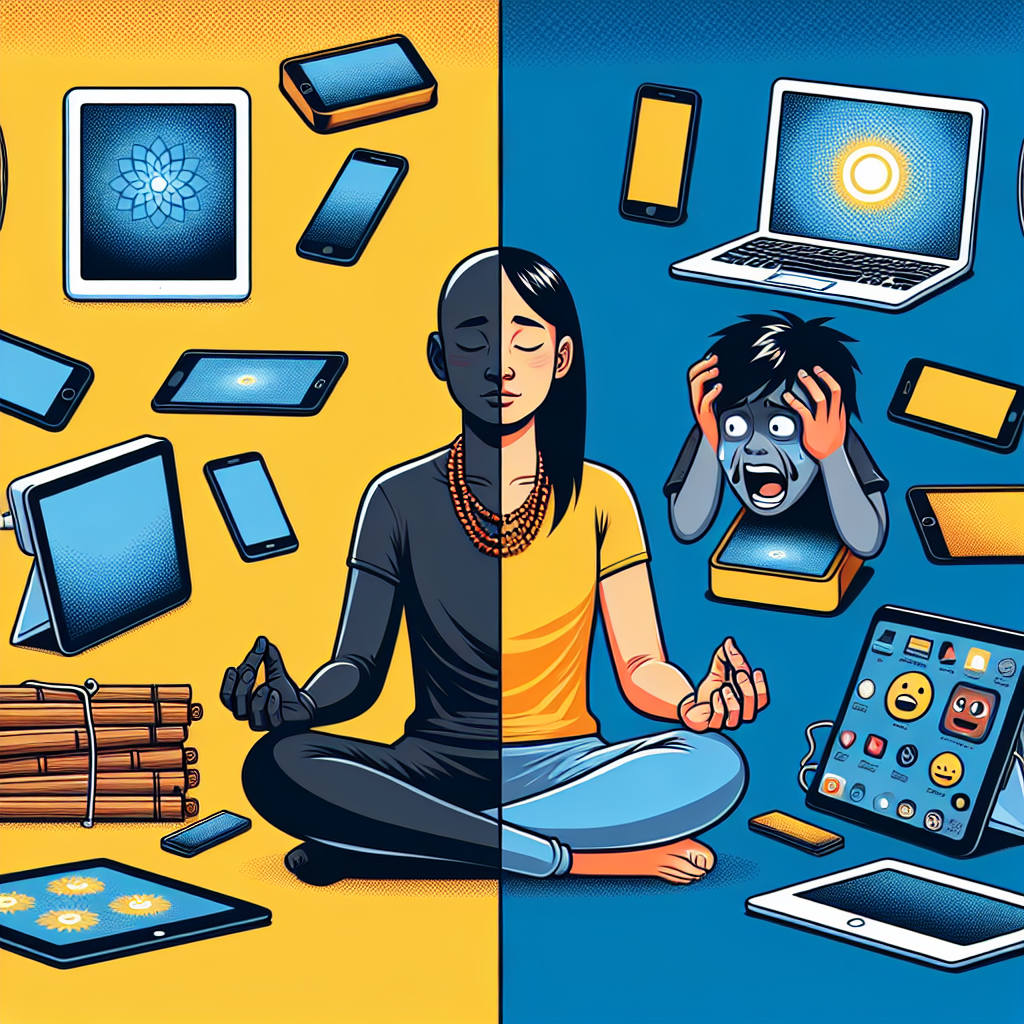In today’s rapidly evolving world, technology is deeply embedded in our daily lives. From the smartphones in our pockets to the vast networks connecting individuals globally, technology influences how we work, communicate, and spend our leisure time. However, as much as it brings convenience and efficiency, it also has profound implications for mental health.
The Double-Edged Sword of Technology
Technology acts as a double-edged sword when it comes to mental health. While it offers significant benefits in terms of connectivity, information access, and even mental health support, it also poses risks, including addiction, anxiety, and reduced physical activity.
Positive Impacts of Technology on Mental Health
- Access to Information and Resources: The internet has democratized access to mental health resources. Sites like WebMD, Healthline, and numerous medical blogs provide detailed information on mental health conditions, treatments, and coping strategies.
- Mental Health Apps and Online Therapy: Digital platforms such as BetterHelp and Talkspace offer easy access to professional therapy, breaking barriers related to distance and availability of healthcare providers. Numerous apps aid in managing symptoms of anxiety, depression, and stress through guided meditation, cognitive-behavioral techniques, and mood tracking.
- Support Networks and Communities: Social media and forums like Reddit or mental health groups on Facebook offer a space for individuals to share experiences, offer support, and build a sense of community, which can be incredibly therapeutic.
- Telemedicine: With the advancement of telecommunication technology, telemedicine has become a viable way to receive mental health care without the need for in-person visits, ensuring that help is always within reach.
Negative Impacts of Technology on Mental Health
- Social Media and Comparison: Platforms like Instagram and Facebook often showcase filtered versions of life, leading to unrealistic comparisons and feelings of inadequacy. Studies have shown a correlation between heavy social media use and higher rates of depression and anxiety.
- Addiction: Video games, social media, and even smartphones themselves can become addictive, leading to decreased productivity, strained relationships, and interference with daily life routines.
- Sleep Disruption: The blue light emitted by screens can interfere with the natural sleep cycle, leading to insomnia and poor sleep quality, which are closely linked to mental health issues.
- Cyberbullying and Online Harassment: The anonymity provided by the internet can lead to harmful behaviors such as cyberbullying, which can have severe psychological effects on victims, including heightened anxiety and depression.
- Information Overload: The constant barrage of information available online can lead to stress and anxiety. The sheer volume of data can be overwhelming, making it difficult to process and focus on what is truly important.
Finding a Balance: Mitigating the Negative Impacts
Recognizing the drawbacks of technology is the first step towards mitigating its negative impacts on mental health. By implementing certain strategies, individuals can enjoy the benefits of technology while minimizing its adverse effects.
Promote Digital Well-being
Setting boundaries around technology use is crucial. This includes:
- Screen Time Limits: Creating designated “no screen” times, especially before bed, can help reduce blue light exposure and improve sleep quality.
- Mindful Consumption: Being selective about the content you consume and taking regular breaks from social media can prevent the feelings of inadequacy that stem from constant comparison.
- Tech-Free Zones: Establishing areas in your home where technology is not allowed, such as the dining room or bedroom, can foster better interpersonal connections and prevent overuse.
Seek Professional Help
If technology is affecting your mental health, consulting healthcare professionals is essential. Therapists can provide strategies to manage technology use and its effects on mental well-being.
Leverage Technology Positively
Using technology for positive outcomes includes:
- Wellness Apps: Utilizing mental health and wellness apps for guided meditations, stress relief exercises, and mood tracking.
- Online Support Groups: Engaging in online support groups that focus on mental well-being and provide a safe space for expression.
- Educational Resources: Taking advantage of online courses and workshops focused on mental health education and coping strategies.
Looking to the Future
As technology continues to evolve, its impact on mental health will remain a critical area of study. Emerging technologies such as virtual reality (VR) and artificial intelligence (AI) have the potential to transform mental health care. VR can offer immersive therapy experiences, while AI can improve diagnosis accuracy and personalize treatment plans.
However, the importance of a balanced approach cannot be overstated. Society must strive to harness technology’s benefits while actively working to reduce its negative impacts on mental health.
In conclusion, while technology presents both opportunities and challenges, navigating its impact on mental health requires awareness and proactive management. By understanding its dual nature, individuals can make informed decisions to enhance their well-being in the digital age.

